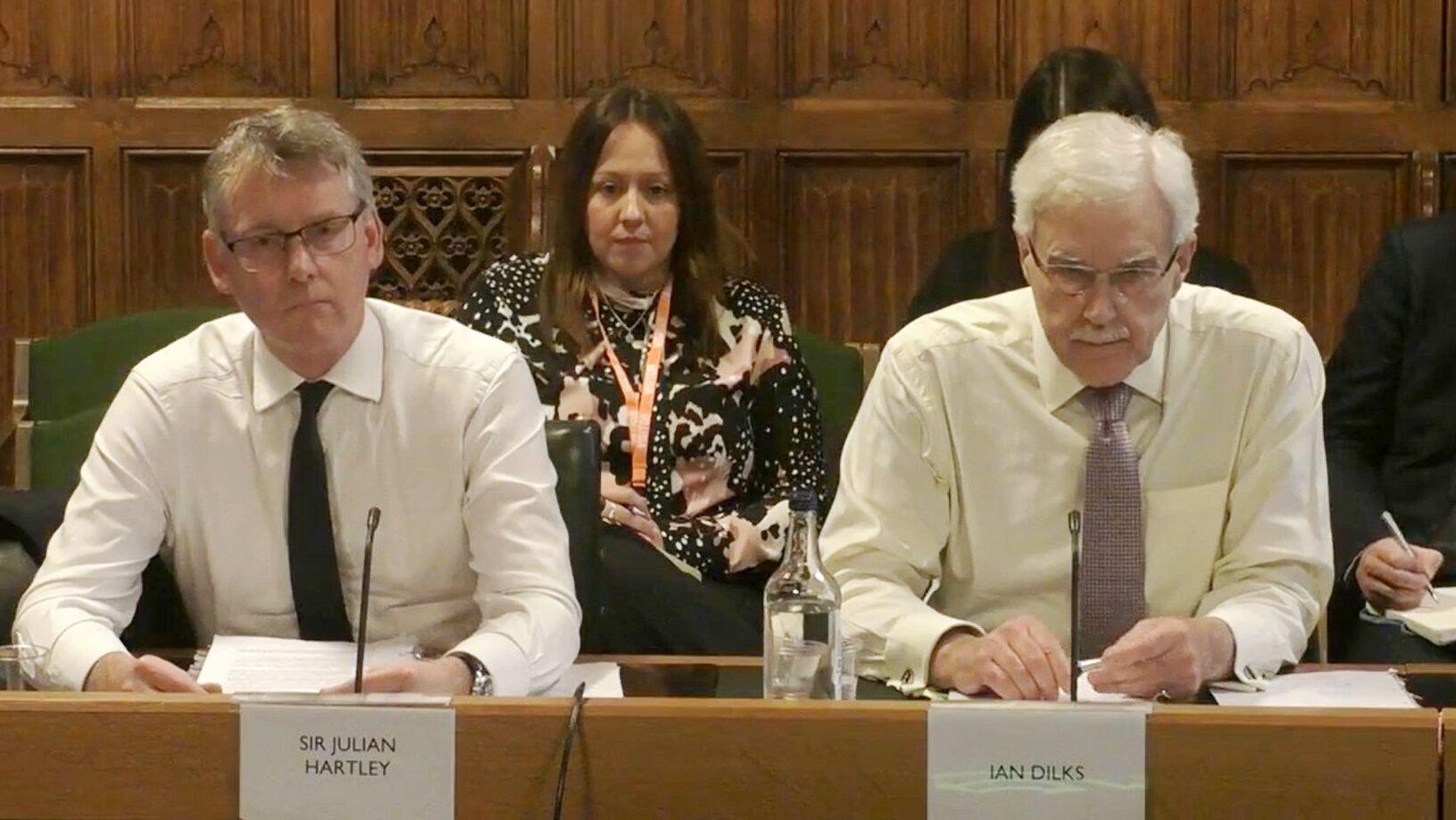Where there’s a will, there’s a way
Despite recent advances, many disabled NHS managers still struggle to get the support they need, and are more likely to be overlooked for promotion, face disciplinary action or experience bullying than non-disabled colleagues. Understanding and commitment from line managers and local leaders is key to further progress, writes Jessica Bradley.

Around 20% of NHS staff reported having some form of disability in last year’s anonymous NHS Staff Survey, but less than 4% have declared their disability to their employer. This difference is “shocking”, according to Peter Reading, interim chief executive of the Yorkshire Ambulance Service, but it isn’t surprising.
“A lot of staff don’t feel safe declaring their disability, especially those with hidden disabilities, such as mental ill-health, epilepsy, autism and some long-term physical conditions,” explains Reading, who is also co-chair of the Disabled NHS Directors Network (DNDN).
According to NHS England’s Workforce Disability Equality Standard (WDES), disabled staff face significant disadvantages in developing their careers. They are also more likely to face capability or disciplinary proceedings and to experience bullying than non-disabled staff.
Reading says that the way management business is done in large organisations like the NHS can disadvantage disabled leaders. “There are a lot of meetings at managerial level, and a number of managers, including some of our network members, with serious hearing impairments find this environment difficult because people don’t acknowledge their hearing impairments,” he explains.
I felt embarrassed
This has long been reality for Stuart Quinton, a retired NHS senior manager and former member of MiP’s National Committee, who was born partially deaf and relies on a hearing aid and lip-reading.
“You don’t interact with people at work in the same way when you’re deaf,” he says. “I couldn’t pick up what people around me were saying in the office, and before the days of adaptive equipment, it was very difficult to be in meetings.
“I had to find out who was speaking and sometimes I couldn’t contribute much. I felt embarrassed to ask and interrupt the flow of the meeting,” he adds.
Reading says it’s important to raise awareness about disability and implement training – including NHS England’s new Oliver McGowan Mandatory Training on Learning Disability and Autism – at workplace level, where it will make the most difference. “We’re keen to see local training come through. The problem is the logistics of implementing it, which is something the NHS struggles with generally when it comes to mandatory training.”
Reading says a lack of knowledge at trust level can also limit the opportunities available to staff with disabilities from the development of assistive technologies. “I have seen in organisations where I’ve worked how local IT departments sometimes struggle to provide what might transform someone’s working life and their ability to contribute to the organisation,” he explains.
Reasonable adjustments
Despite the obligations on employers under the 2010 Equality Act, securing the assisted technology and other ‘reasonable adjustments’ they need to work effectively and comfortably remains significant barrier for many disabled managers.
“There have been serious issues within my own organisation with having to get involved with a number of staff who want assisted technology that people are struggling to provide,” Reading admits.
Kate Smyth, non-executive director at Lancashire Teaching Hospitals NHS Trust, and founder and co-chair of the DNDN, has first-hand experience of this. “I need very bespoke adjustments to my IT and have struggled—not with the will of the trust, but with its ability to sort it out. When there’s someone with very specific needs, there isn’t anyone a trust can go to for advice,” she says. “There should be a national centre of excellence in assistive technology which all NHS bodies can access.”
Deirdre Costigan, UNISON’s disability equality officer, says it’s important for line managers to understand that reasonable adjustments can include additional supervision or changes to targets and working patterns as well as special equipment. “Staff, including management, struggle to get the reasonable adjustments they need, but it could be as simple as changing shift patterns or altering their start time,” she explains.
According to Costigan, employers, including the NHS, sometimes claim they can’t make an adjustment because it wouldn’t be fair on non-disabled staff, even though they have a legal duty to treat disabled staff more favourably where this could help break down the barriers they experience.
“Not getting the adjustments they need is a key driver for disabled managers getting stuck on lower pay grades and not being able to progress in the organisation,” she says. “This means that sometimes the disabled manager can struggle to do their job as well as they want to because they don’t have the adjustments they’re entitled to by law, and they end up having to take time off sick unnecessarily and aren’t put forward for training, and therefore miss out on progression opportunities.”
Investing in staff
Reasonable adjustments cost money, but they’re a relatively small investment which may incentivise staff to stay in the NHS, says Joan Saddler, the NHS Confederation’s director of partnerships and equality. “Making sure we have adequate technological assistance so people can do their jobs is how we retain them and deliver services,” she says.
Some NHS trusts are becoming more proactive in helping staff to apply for reasonable adjustments. For example, until recently, staff at Guy’s and St Thomas’ NHS Foundation Trust had to apply through their line manager for reasonable adjustments, but now that money comes from a central fund.
“Staff previously didn’t feel they could access it because it came out of their department,” says Tarlochan Boparai, associate director for digital diagnostics at Guy’s and St Thomas’. Getting sign off from their managers was so laborious that staff often bought equipment themselves, he explains “Now it’s much easier. If staff can get the reasonable adjustments they need, it means we’re fulfilling their basic needs and they can be more engaged and committed,” he explains. “There will be better retention because people feel more valued and they can do their jobs more efficiently.”
Other ways in which trusts are going further to support disabled managers include introducing ‘reasonable adjustment passports’, which mean staff can avoid having to renegotiate adjustments when they move to a different NHS team, or offering ‘disability leave’ – paid time off for a reason related to their disability.
While disability leave is harder to negotiate, Costigan says, it’s vital to achieving inclusion and equality. “One reason disabled people often find it difficult to climb higher on the management ladder is because they can’t take disability leave, and have to take sick leave instead. This is then used against them when assessing whether they can move forward in the organisation,” she explains.
According to Kate Smyth, “many trusts don’t have any board members who are disabled and, as a result, miss out on having people with different lived experiences on their boards.” This may affect the perception of the board by less senior disabled members of staff, who may feel that their trust does not value diversity, especially in relation to disabled colleagues.”
Networks grow confidence
One way disabled managers can counter this is through the peer support offered by local and national networks specifically for staff with disabilities – and NHS England now expects all NHS organisations to have a disabled staff network.
The Disabled NHS Directors Network was formed in 2020 to strengthen the voice of disabled NHS directors, and was the first national network representing NHS leaders with disabilities.
“Staff networks are great for growing staff members’ confidence,” Saddler says. “They enable managers to look for solutions themselves, rather than them coming down from on high.”
They’re also an important marker of how hard a trust is working to become an inclusive workplace. “The Care Quality Commission will talk to these networks during inspections about staff experiences to gauge what the culture is really like within an organisation,” says Paul Deemer, NHS Employers’ head of diversity and inclusion.
Staff networks are also a way to disseminate important information and training on supporting staff with disabilities, he adds. “Getting the message out across the whole system is a huge challenge, but we’ve got lots of mechanisms and processes in place to do that.” A lot of information goes through HR director networks, Deemer says, “but we rely on HR directors or chief executives in a trust to disseminate to line managers, and there’s only so much you can do to influence that.”
While Quinton doesn’t think his disability made much difference to his career trajectory, joining NHS England’s disabled staff network was “really illuminating”, he says, because it showed him that many disabled colleagues had fared much worse. “It was an eye-opener to hear what other people had had to put up with. It was disgraceful,” he says.
While most trusts have disability networks now, Reading says, there’s much more to do. He backs the recent recommendation from the Association of Ambulance Trust Chief Executives that all peer support network chairs and vice chairs should have 15 hours of protected time every month. “We’re also advocating for central budgets for reasonable adjustments, and a trust-wide disability leave policy, as well as a centralised resource and knowledge base,” he says.
In the spotlight
Saddler says the increased transparency brought by the WDES is helping to make employers more accountable. Trusts must now publish an action plan alongside their workforce disability data, to show what they’re doing to tackle discrepancies. “There’s still a long way to go… but at least we now have some anchors of accountability, so the spotlight is shining on it more,” she says.
While experts agree more must be done, there’s a consensus that the NHS has become more inclusive for disabled managers in recent years. “When I entered the world of work in 1985, disabilities were viewed very differently,” Quinton says. “I was discriminated against, but I didn’t think like that at the time. The perception then was that disabled people had to just get on with it – compensate or adapt. There wasn’t an expectation of equality in the office.”
“Things have improved immensely from the start of my career, but there’s still a lot to do because there’s still discrimination,” he continues. “If things had been this good at the beginning of my career, I wonder where I could’ve been today.”
The ongoing challenge now, says Saddler, is ensuring that NHS leaders share the wider goals of improving equality for disabled managers. Further progress depends on line managers knowing how to support disabled staff and make them visible within their organisation.
“We’re used to complexity; we do big things for patients so we can do it for the workforce, too. But the will has got to be there,” Saddler concludes. “There has to be clear accountability linked back to the workforce, so that people are taking it seriously—and know that there are consequences if they’re don’t.”
The numbers
- According to the 2022 NHS staff survey, 20% of staff say they have a disability, but only 3.7% have declared their disability to their employer.
- 3.7% of NHS trust board members are disabled, but 58% of trusts have no disabled board members.
- 2.8% of Very Senior Managers (VSMs) are disabled, and 59% of trusts have five or fewer disabled people in senior management positions. 6% of trusts have none at all.
- Only 1.1% of medical consultants declared a disability.
- A quarter of disabled staff report experiencing harassment, bullying or abuse within the last year, compared to 18% of non-disabled staff.
- 22% of disabled staff believe they don’t have equal opportunities at work; 15% of non-disabled staff feel the same way.
- 24% of disabled staff say they don’t get the adjustments they need at work.
- Disabled staff are nearly twice as likely to enter the formal capability process as non-disabled colleagues.
Source: NHS Workforce Disability Equality Standard, May 2022.
Related News
-

Regulating the managers: more questions than answers
The Labour government’s plans for regulating NHS managers are still shrouded in mystery, and the three options on the table each have their pros and cons. Rhys McKenzie weighs up the choices and gauges the views of MiP members on the best way forward.
-

The inspector falls: why the CQC needs a fresh start
After years of chaos, the Care Quality Commission urgently needs to rebuild trust and credibility with the public and the services it regulates. What needs to change and what are the priorities for new boss Sir Julian Hartley? Alison Moore reports.
-

Voice, value and vision: what analysts need from the NHS
Data analysts play a vital role in an NHS which is increasingly data-driven and focused on public health trends. But the NHS faces fierce competition for skilled analysts and many feel the health service fails to value them or fully use their talents. Alison Moore reports.